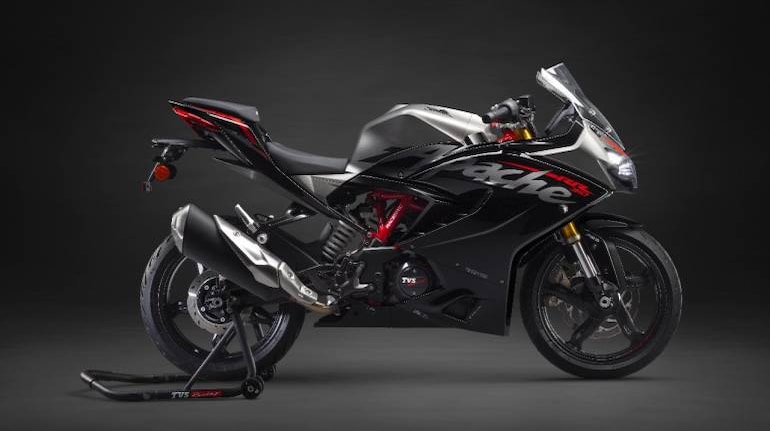October 22, 2021 / 11:44 IST
TVS Motor Company suffered a production loss of 25,000 units of its premium Apache range of motorcycles in the September quarter because of a semiconductor shortage that has squeezed the automobile industry.
The industry has looked for alternative sources of microchips with limited success. “Because of the semiconductor shortage we lost more than 25,000 (units) of Apache, where we have extremely good demand,” TVS Motor’s chief executive officer K N Radhakrishnan said in an earnings call. TVS sells five models under the high margin Apache brand with prices starting at Rs 1.06 lakh (RTR 160) and going up to Rs 2.55 lakh (RR 310). The Chennai-based bike and scooter maker is estimated to have suffered a revenue loss of anywhere between Rs 270 crore and Rs 330 crore to the chip shortage in the July-September quarter. The Apache brand of motorcycles has helped TVS become the leader in not just the 150cc to 200cc segment, but it has become the highest-selling brand in the 125cc to 200cc motorcycle segment as well. With a market share of 44 percent in the 150-200cc segment Apache managed to beat the broader weak demand trend to post growth of 33 percent in the September quarter, according to Society of Indian Automobile Manufacturers (SIAM) data. Radhakrishnan said TVS had managed to improve semiconductor availability, but only by September. These were routed towards the Apache range to improve supplies of the bike. “With appropriate countermeasures we were able to improve production of premium products from September. Through our long-term relationship with semiconductor suppliers and through our tie-ups with additional sources, we are able to minimise the shortage in chip availability,” Radhakrishnan added.Electric scooter Besides the Apache motorcycles, semiconductors are used in TVS’s only electric product, the iQube. The company claims that there is a significant order backlog for the electric scooter and it is not able to supply enough units to the market because of the shortages. “We were able to take some countermeasures for Apache which helped but for iQube we are still having some challenges. We are holding discussions with suppliers and we are sure we will get support from them,” Radhakrishnan added. While the semiconductor shortage has kept automotive production plants under-utilised for the past several months, the availability of these chips are steadily improving, according to the latest feedback from auto parts manufacturers and automakers. “Although there is significant expansion lined up in the global semiconductor industry, high capital intensity and long gestation periods associated with setting up of facilities are expected to keep the ongoing chips shortage intact at least in the rest of FY22,” a report from CARE ratings said.
Discover the latest Business News, Sensex, and Nifty updates. Obtain Personal Finance insights, tax queries, and expert opinions on Moneycontrol or download the Moneycontrol App to stay updated!




